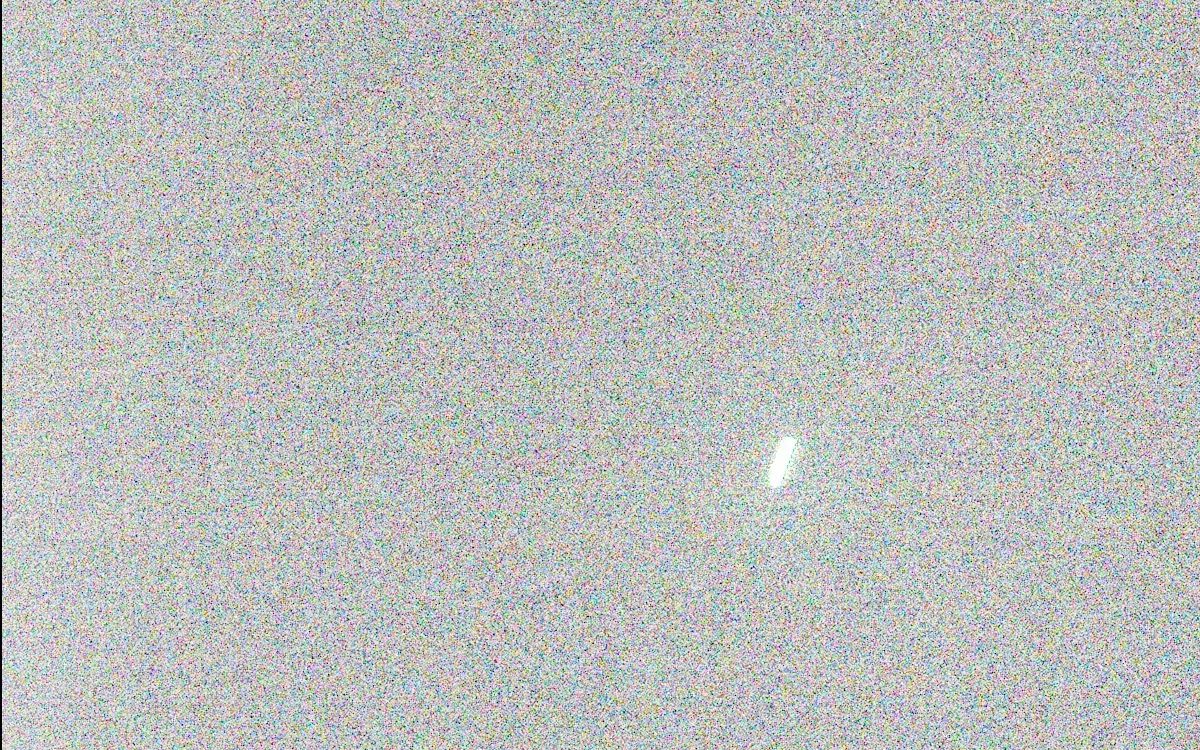
As predicted, the interstellar object 3I/ATLAS has come within a remarkably close distance to the surface of Mars, continuing its journey through the solar system. This enigmatic object, which is widely thought to be a comet, is only the third known interstellar object to be identified as it traverses our solar neighborhood. Since its initial observation in early July, 3I/ATLAS has captured the attention of scientists and space enthusiasts alike.
Recently, NASA's Mars Perseverance rover successfully captured images of 3I/ATLAS as it made its flyby of the Red Planet. The images, taken by the rover's Right Navigation camera (Navcam), reveal a striking streak against the vastness of space. These pictures were shared by NASA over the weekend, showcasing the interstellar visitor during its close passage, approximately 23.6 million miles from Mars.
Harvard astronomer Avi Loeb, who has been a vocal advocate for closer observations of the comet, provided his initial analysis of the images in a recent blog post. Through some quick calculations, Loeb estimated that the visible stripe in the Perseverance images spans about 31,000 miles. However, he suggested that the object itself is likely smaller than it appears. The distortion in size, he explained, results from the camera's “long integration time.”
Loeb elaborated, stating, “In conclusion, the stripe in the Navcam image must have resulted from stacking hundreds of Navcam images over a total time interval of about ten minutes.” He noted that if viewed in a single snapshot, 3I/ATLAS would appear as a circular spot, given that the maximum exposure time for the Navcam is 3.28 seconds.
Loeb cautioned that if the Navcam images represent single snapshots with exposure times shorter than 3.28 seconds, the brightness and angular length observed might not indicate the presence of 3I/ATLAS. Instead, it could be an object much closer to the camera, appearing elongated due to its proximity and speed. As of now, it remains unconfirmed whether the images indeed depict 3I/ATLAS. Futurism has reached out to NASA for further validation.
Fortunately, there is potential for even more detailed observations soon. Loeb indicated that the HiRISE camera on NASA's Reconnaissance Mars Orbiter captured an image of 3I/ATLAS on October 3, although the data has not yet been released. This forthcoming information could provide critical insights into the true size of this interstellar visitor. Loeb has previously speculated that 3I/ATLAS could be immense, weighing around 33 billion tons and measuring approximately 3.1 miles across—significantly larger than the two prior interstellar visitors we have observed.
Loeb concluded his latest blog post with optimism, stating, “The brightest pixel in the HiRISE image will provide the best constraint yet on the area of 3I/ATLAS. We are all hoping that the HiRISE team will release their images as soon as possible.” The scientific community eagerly awaits further analysis and potential revelations regarding this fascinating interstellar object.